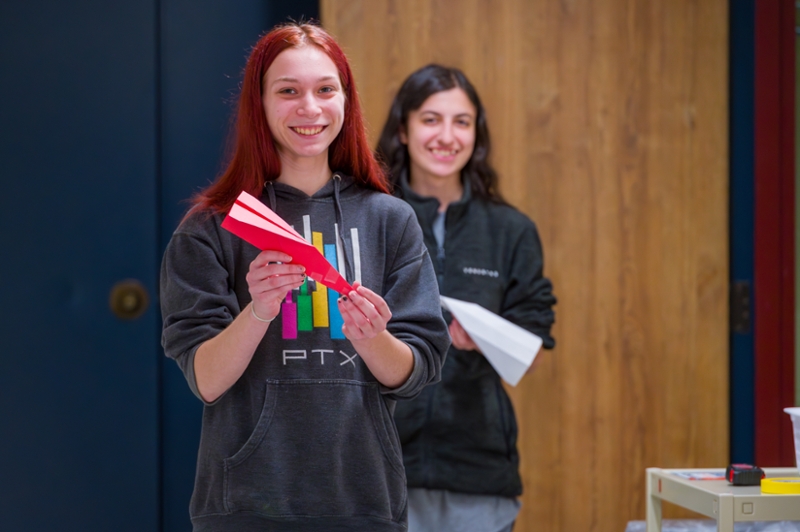
Download Image: Web
Monsters are a common component of myths, legends, literature, movies, and the imagination. But how do they work, and what would the world need to look like for Godzilla or Frankenstein to walk among us? Led by Mary Kate O’Donnell, assistant professor of biology, students enrolled in Lycoming College’s First Year Seminar, “The Biology of Monsters,” analyze monster stories using modeling methods, such as estimating body size and weight for King Kong, estimating the caloric content of blood and number of humans required to meet the metabolic needs of a vampire, or determining the rate of spread of a zombie disease.
“I want to show students how biology affects other areas of their lives and studies, and I want them to get more comfortable with the idea that anyone can talk about science and biology. It’s a way for them to practice thinking critically and doing research on those topics,”
“I based this on a biomechanics and functional morphology course developed by a colleague, Dr. William Ryerson, at his institution,” said O’Donnell. “I love teaching students about real organisms, physical principles that constrain animals’ bodies and behavior, and real techniques for analyzing animal performance, then applying those techniques to such a fun and silly concept as a monster movie!”
Since “The Biology of Monsters” is open to all first-year students, including non-biology majors, O’Donnell adapted the course to cover a diverse array of subjects, such as ecology, animal behavior, physics, anatomy, history, literature, film making, and psychology. The culminating project is to apply all these skills to a specific monster, analyze it, compare it to a real animal, and then replace it with a “better monster” as part of their final essay for the course.
“Some of my favorite parts of the class are when we are talking about real life organisms and comparing them to monsters. It's so much fun to talk about the many different reasons why monsters aren't biologically possible. Godzilla is too big for his bones to support his body, vampires would need to consume multiple people a day due to blood being mostly water, werewolf transformations aren't really possible as a change of that magnitude would produce/consume a ton of heat killing the person, and so much more,” said Angelina Macchia Barba ’27, a biology major and chemistry minor who is earning a secondary education certification with plans on teaching high school science. “I’m really excited to have real life applications to share with future students. I find the fact that scientists look at certain organism locomotion to create better robots and prosthetics fascinating.”
“I want to show students how biology affects other areas of their lives and studies, and I want them to get more comfortable with the idea that anyone can talk about science and biology. It’s a way for them to practice thinking critically and doing research on those topics,” added O’Donnell. “In talking about monsters, monster movies, and a mix of strange animals and fundamental biological principles, I hope that they grow as first year students into people who are comfortable talking in class, writing creatively and in a research context, and trying to learn new skills throughout their time here.”
“The Biology of Monsters” is just one of Lycoming College’s First-Year Seminars, designed to help students establish the skills necessary to be successful in college by encouraging critical thinking in the classroom and promoting written, oral, and information literacy. Students can broaden their minds and discover a new interest by selecting a First-Year Seminar outside of their primary areas of interest. Each First-Year Seminar meets a general education requirement, so all advance students toward graduation. Other first-year seminars include “Zen and Art,” “Medieval Food and Culture,” “The Pursuit of Happiness,” and many more.